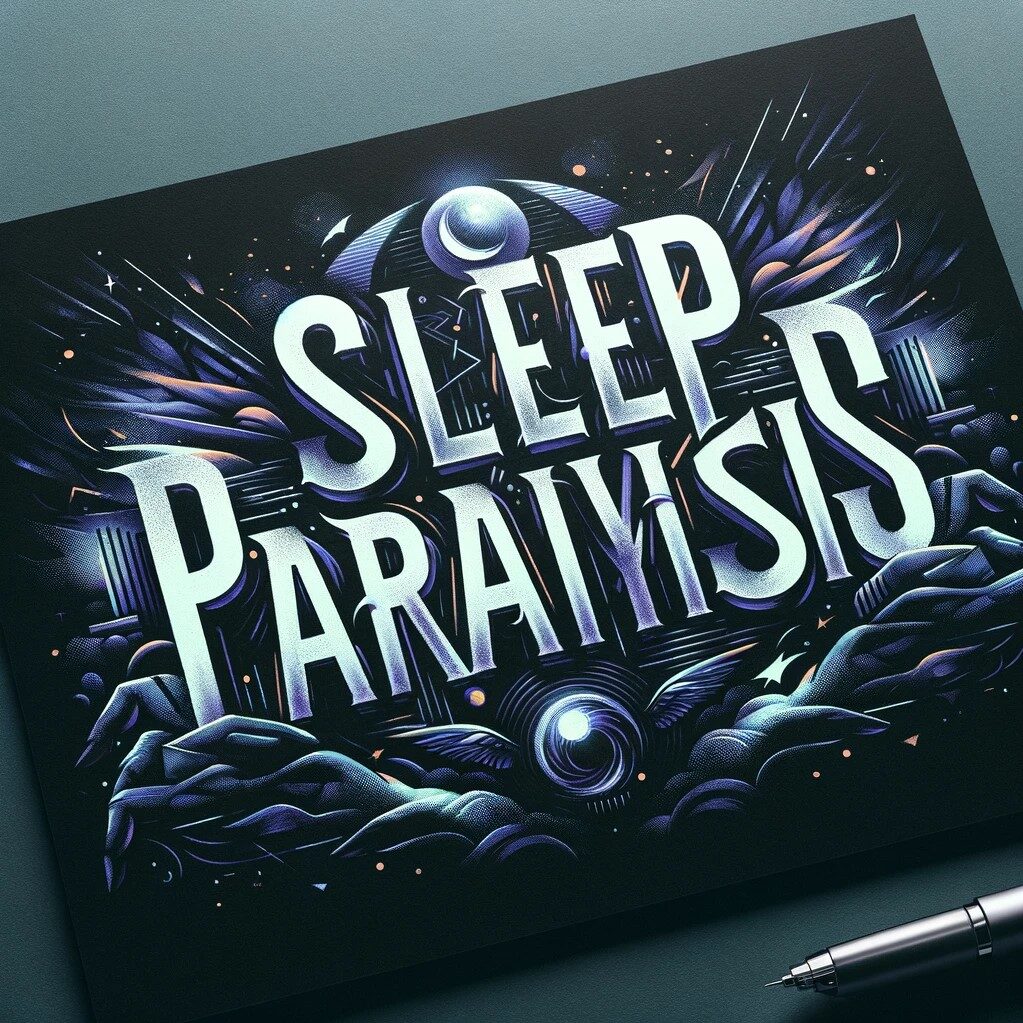Have you ever wondered if children can experience sleep paralysis? It’s a topic that has sparked curiosity among many parents and caregivers. Sleep paralysis, a phenomenon where you temporarily cannot move or speak while waking up or falling asleep, is commonly associated with adults. However, recent studies have shown that children can indeed experience this unsettling sensation as well. In this article, we will explore the causes, symptoms, and ways to manage sleep paralysis in children, providing valuable insights for concerned parents and guardians. So, let’s shed light on this mysterious and often misunderstood occurrence and help you better understand what your little ones might be going through.
What is sleep paralysis?
Sleep paralysis is a temporary inability to move or speak while transitioning between sleep and wakefulness. It occurs either when falling asleep or upon waking up, and is often accompanied by vivid hallucinations and a feeling of pressure on the chest. During this state, individuals are fully aware of their surroundings but unable to move or speak.
Definition of sleep paralysis
Sleep paralysis is a phenomenon characterized by the temporary paralysis of the muscles during sleep or upon waking up. It is often accompanied by hallucinations and a sense of pressure on the chest. This state can be extremely distressing and cause anxiety and fear in those who experience it.
Causes of sleep paralysis
The exact cause of sleep paralysis is still not fully understood. However, there are several factors that have been linked to its occurrence. Some possible causes include disrupted sleep patterns, sleep deprivation, irregular sleep schedule, genetics, and certain medical conditions such as narcolepsy and anxiety disorders.
Symptoms of sleep paralysis
The main symptom of sleep paralysis is the temporary inability to move or speak. This can be accompanied by a feeling of pressure on the chest and hallucinations, which can range from mild to extremely vivid. People may also experience a sense of fear or impending doom during an episode of sleep paralysis.
Sleep paralysis in adults
Sleep paralysis is not limited to adults and can occur in individuals of all ages, including children. However, it is more commonly reported in adults.
Prevalence in adults
Studies indicate that approximately 8% of the adult population experiences sleep paralysis at least once in their lifetime. It is more common in individuals with certain sleep disorders, such as narcolepsy, and those who experience high levels of stress and anxiety.
Common triggers for sleep paralysis in adults
Sleep deprivation, irregular sleep patterns, physical exhaustion, and a history of sleep disorders are some common triggers for sleep paralysis in adults. Additionally, high-stress levels, anxiety, and certain medications can also increase the likelihood of experiencing sleep paralysis.
Negative impact on adults’ sleep quality and mental well-being
Sleep paralysis can have a significant negative impact on the sleep quality and mental well-being of adults. The episodes can cause heightened anxiety, fear, and feelings of helplessness. Sleep quality may be compromised due to the fear of experiencing another episode, leading to daytime fatigue and decreased productivity.

Sleep paralysis in children
While sleep paralysis is more commonly associated with adults, children can also experience it. However, it is less frequently reported in children compared to adults.
Existence of sleep paralysis in children
Research suggests that sleep paralysis does occur in children, but it may be underreported due to the young age and limited ability of children to communicate their experiences accurately.
Age range for experiencing sleep paralysis
Sleep paralysis can affect children of various ages, although it is more commonly reported in older children and adolescents. The precise age range can vary, but it generally occurs in children aged 8 and above.
Frequency and duration of sleep paralysis episodes in children
The frequency and duration of sleep paralysis episodes in children can vary. Some children may experience isolated episodes, while others may have recurrent episodes. The duration of each episode can range from a few seconds to a couple of minutes. It is important to note that the impact of sleep paralysis on children can be distressing and may require support from parents and healthcare providers.
Differentiating sleep disorders in children
Sleep disorders in children can often be confused with sleep paralysis. It is important to understand the differences between various sleep disorders to ensure proper diagnosis and treatment.
Understanding the difference between nightmares and sleep paralysis
Nightmares are vivid, frightening dreams that can cause fear and distress upon awakening. Unlike sleep paralysis, nightmares do not involve physical paralysis. Sleep paralysis, on the other hand, is characterized by the temporary inability to move or speak upon awakening while being fully conscious.
Comparing sleepwalking and sleep paralysis in children
Sleepwalking is a disorder in which children engage in complex behaviors while asleep, such as walking and talking. Sleep paralysis, however, is characterized by an inability to move or speak rather than engaging in physical behaviors.
Exploring other sleep disorders that may be mistaken for sleep paralysis
Other sleep disorders that may be mistaken for sleep paralysis in children include REM sleep behavior disorder (RBD) and night terrors. RBD involves the acting out of dreams during REM sleep, while night terrors are episodes of intense fear and confusion during sleep, often accompanied by screaming and physical agitation.

Possible causes of sleep paralysis in children
Understanding the possible causes of sleep paralysis in children can help identify risk factors and develop appropriate interventions.
Impact of irregular sleep schedule
An irregular sleep schedule can disrupt the natural sleep-wake cycle, increasing the likelihood of sleep paralysis in children. Ensuring a consistent sleep routine can help mitigate this risk.
Association with sleep deprivation
Sleep deprivation can lead to an increased occurrence of sleep paralysis in children. Adequate sleep hygiene and ensuring that children receive sufficient sleep each night are essential for preventing sleep deprivation-related sleep paralysis episodes.
Role of family history and genetics
There is evidence to suggest that sleep paralysis in children may be influenced by family history and genetics. If a parent or close family member has experienced sleep paralysis, children may be more likely to experience it as well.
Relation to anxiety disorders in children
Anxiety disorders, such as general anxiety disorder or panic disorder, can contribute to the occurrence of sleep paralysis in children. Addressing anxiety through therapy or other treatment interventions may help reduce the frequency of sleep paralysis episodes.
Influence of sleep disorders, such as narcolepsy
Sleep disorders, such as narcolepsy, are associated with an increased likelihood of experiencing sleep paralysis. Identifying and addressing underlying sleep disorders in children is crucial for managing and reducing the occurrence of sleep paralysis episodes.
Effects of sleep paralysis on children
Sleep paralysis can have several negative effects on children’s well-being, particularly in relation to their sleep quality, mental and emotional well-being, and overall functioning.
Disturbed sleep patterns
Sleep paralysis episodes can disrupt children’s sleep patterns, leading to a lack of restful or rejuvenating sleep. This can result in daytime fatigue, decreased attention span, and difficulty concentrating.
Impact on children’s mental and emotional well-being
Sleep paralysis can be a frightening and distressing experience for children, leading to increased anxiety and fear surrounding sleep. This can negatively impact their mental and emotional well-being, potentially contributing to the development of anxiety disorders or other psychological issues.
Negative effects on academic performance and daily functioning
Unaddressed sleep paralysis in children can affect their academic performance and daily functioning. Sleep deprivation resulting from sleep paralysis can lead to difficulties in school, poor concentration, and impaired cognitive abilities.
Dealing with sleep paralysis in children
To help children cope with sleep paralysis, parents and caregivers can take several steps to create a safe sleep environment and promote healthy sleep habits.
Educating parents and children about sleep paralysis
Educating parents and children about sleep paralysis is essential in reducing anxiety and fear surrounding the experience. Providing accurate information about this phenomenon can help children understand that it is a relatively common, harmless occurrence.
Creating a safe sleep environment
Creating a safe and comfortable sleep environment is important for children experiencing sleep paralysis. Ensuring a dark and quiet room, comfortable bedding, and appropriate temperature can help promote better sleep quality and reduce anxiety.
Establishing healthy sleep habits
Establishing and maintaining healthy sleep habits is crucial for children with sleep paralysis. This includes maintaining a consistent sleep schedule, avoiding stimulating activities close to bedtime, and practicing relaxation techniques to reduce anxiety before sleep.
Encouraging communication and support for children dealing with sleep paralysis
Encouraging open communication and providing emotional support can help children cope with their experiences of sleep paralysis. Offering reassurance and understanding can help alleviate their fears and anxiety surrounding this phenomenon.
Seeking professional help
In some cases, it may be necessary to seek professional help from pediatricians or sleep specialists to address sleep paralysis in children effectively.
When to consult a pediatrician or sleep specialist
It is important to consult a pediatrician or sleep specialist if sleep paralysis episodes are persistent, significantly impacting the child’s sleep quality or emotional well-being, or if other sleep disorders are suspected. They can provide a thorough evaluation and appropriate guidance for managing sleep paralysis in children.
Diagnostic process for sleep disorders in children
The diagnostic process for sleep disorders in children typically involves a detailed medical history, examination, and potentially additional assessments such as sleep studies. These evaluations help identify any underlying conditions and provide guidance for the appropriate treatment of sleep paralysis.
Treatment options and therapies available for sleep paralysis in children
Treatment options for sleep paralysis in children may include addressing underlying sleep disorders, implementing behavioral changes, and providing psychological support. Treatment approaches may vary depending on the individual child’s needs and the underlying causes of their sleep paralysis.
Parental guidance and support
Parents play a vital role in supporting their children through the experience of sleep paralysis. Understanding and empathizing with their children’s feelings can make a significant difference in their well-being and ability to cope.
Understanding and empathizing with children’s experience
Parents should make an effort to understand and empathize with their children’s experience of sleep paralysis. This involves actively listening, validating their feelings, and providing reassurance that sleep paralysis is a common occurrence that can be managed.
Providing reassurance and comfort
Reassurance and comfort are essential for children dealing with sleep paralysis. Parents can offer a safe space for their children to express their fears and concerns while providing reassurance that they are not alone and that their experiences are valid.
Helping children cope with fear and anxiety associated with sleep paralysis
Parents can help children develop coping strategies to manage fear and anxiety associated with sleep paralysis. Techniques such as deep breathing, visualization exercises, or relaxation techniques can be taught to help children feel calmer and more in control during episodes.
Supporting children in maintaining good sleep hygiene
Parents should prioritize good sleep hygiene for their children, ensuring they have regular sleep schedules, a calm sleep environment, and a bedtime routine that promotes relaxation. Consistency and routine can help reduce the occurrence of sleep paralysis episodes in children.
Conclusion
Sleep paralysis is a unique and often distressing phenomenon that can affect both children and adults. While it is more commonly reported in adults, children can also experience sleep paralysis. Understanding the causes, symptoms, and possible effects of sleep paralysis on children is crucial for providing appropriate support and guidance. By educating parents and children, creating a safe sleep environment, and seeking professional help when needed, the negative impact of sleep paralysis on children can be minimized, allowing them to have restful and peaceful nights.
